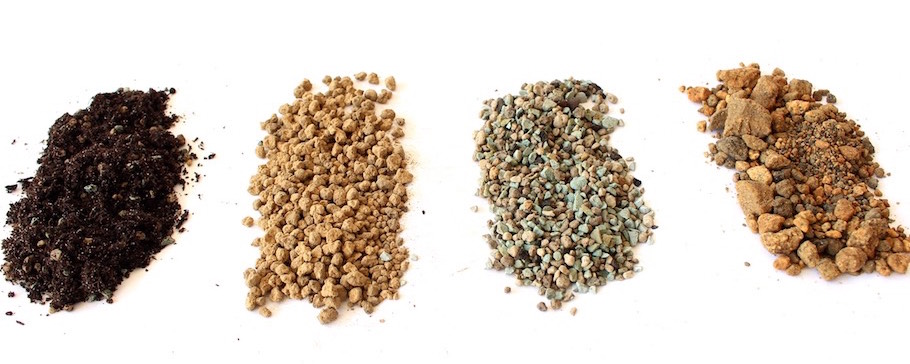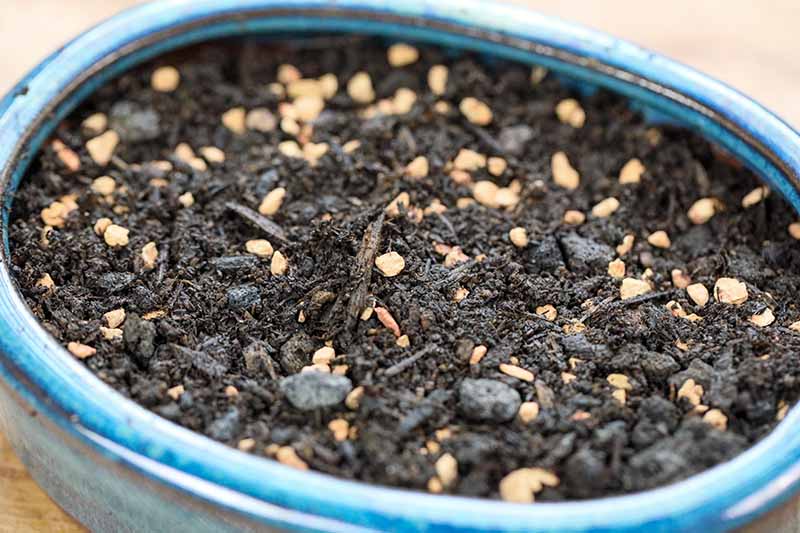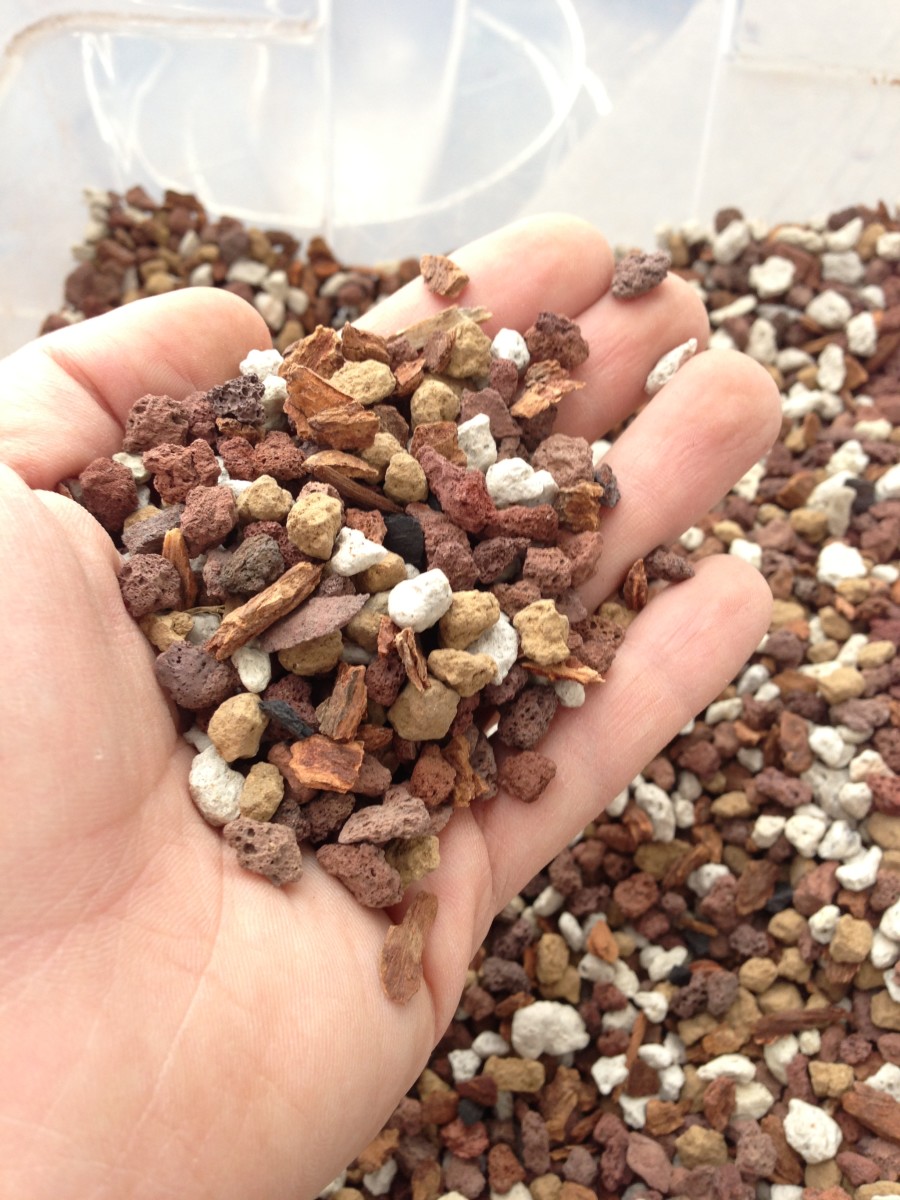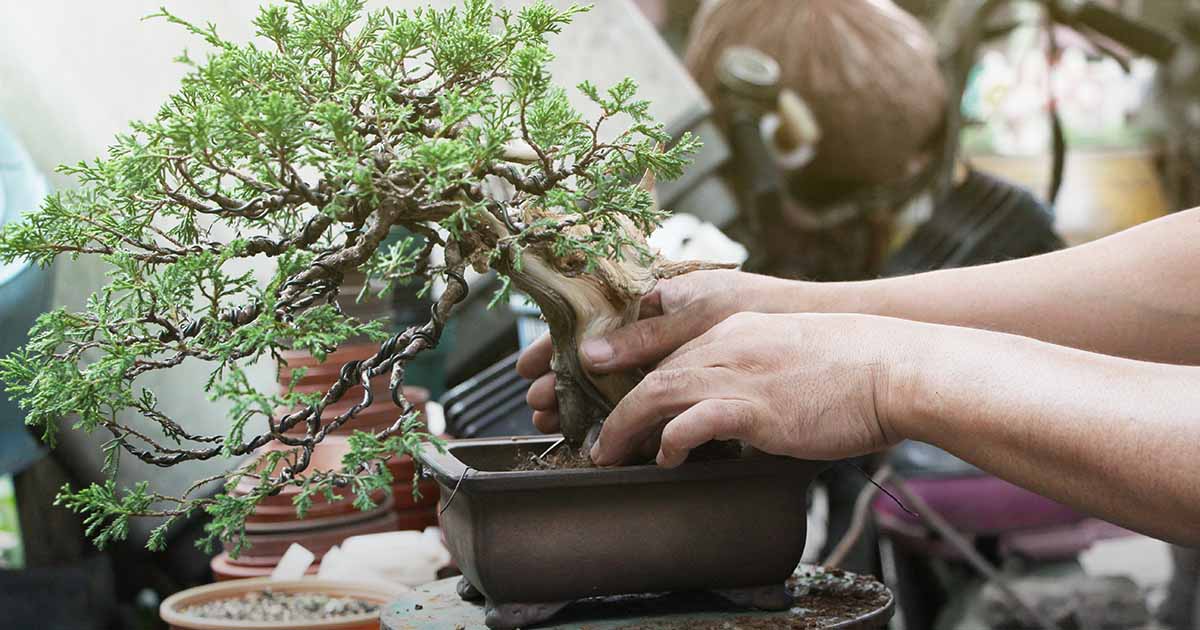On this page, we will discover the different sorts of soil and substrates Utilized in bonsai cultivation, including organic and inorganic choices.
We will also uncover encouraged soil mixtures for various bonsai species, which include deciduous, coniferous, and indoor types. From akadama and pumice to moss and river sand, we will dive in to the intriguing planet of bonsai soil and assist you realize why It truly is an essential Component of cultivating these exquisite trees.

Bonsai soil
What is bonsai soil?
Bonsai soil is a specialized type of soil that is specifically formulated for growing and maintaining bonsai trees. Unlike regular garden soil, bonsai soil is well-draining and provides the necessary nutrients and moisture balance for the tree's root system. The composition of bonsai soil is carefully designed to meet the unique needs of bonsai trees, ensuring their health and longevity.
The importance of bonsai soil
The choice of soil plays a crucial role in the success of your bonsai tree. The right soil provides optimal drainage, allowing excess water to flow freely and preventing root rot. It also promotes a healthy and well-developed root system, which is essential for the overall health and growth of the tree. Bonsai soil retains moisture while allowing air to reach the roots, striking the perfect balance for the tree's needs. Choosing the right bonsai soil is essential for maintaining a healthy and thriving bonsai tree.
Bonsai substrates
What are bonsai substrates?
Bonsai substrates refer to the different materials that can be used to create the ideal soil composition for bonsai trees. These substrates are carefully chosen to meet the specific needs of different species of bonsai trees and to ensure proper water drainage and nutrient availability.
Different types of bonsai substrates
There are various types of bonsai substrates available, each with its own unique characteristics and benefits. Some common bonsai substrates include:
- Organic materials: These include ingredients such as bark, peat moss, and coconut coir. Organic substrates help retain moisture and provide essential nutrients to the bonsai tree.
- Inorganic supplies: These contain parts like pumice, lava rock, and akadama. Inorganic substrates give outstanding drainage, guaranteeing that excessive h2o does not accumulate around the roots in the bonsai tree.
- Soil amendments: These are definitely substances which can be included for the soil mixture to reinforce its Houses. Samples of soil amendments incorporate perlite, vermiculite, and sand. They Enhance the soil's aeration, water-Keeping ability, and nutrient availability.
By comprehending the differing types of bonsai substrates as well as their Qualities, you are able to select the most suitable a single on your bonsai tree's desires.
Organic and natural or Inorganic Soils
Organic and natural soils for bonsai
Organic soils for bonsai are made up of purely natural supplies including bark, peat moss, coconut coir, and compost. These resources offer a abundant supply of nutrients for that bonsai tree and boost healthier root progress. Natural soils also have superior drinking water retention Attributes, guaranteeing the tree receives adequate moisture amongst watering sessions. Nevertheless, it is vital to notice that natural and organic soils may possibly stop working after a while and turn into compacted, bringing about bad drainage and probable root issues.
Inorganic soils for bonsai
Inorganic soils for bonsai encompass elements like pumice, lava rock, akadama, and soil amendments like perlite or vermiculite. These supplies have superb drainage Qualities, protecting against waterlogged soil and selling aeration around the roots. Inorganic soils are desired by lots of bonsai lovers because of their longevity and talent to provide a secure setting with the bonsai tree's root method. Nonetheless, they may involve far more Regular watering and additional fertilization, as they don't maintain just as much humidity or nutrients as natural and organic soils.
Pros and cons of making use of organic and natural and inorganic soils for bonsai
Deciding on concerning organic and natural and inorganic soils for the bonsai tree depends upon various elements, including the specific species of tree, your local weather, and private Tastes. Listed here are the pros and cons of each and every:
Organic and natural soils:
- Professionals: Provide nutrients, very good drinking water retention, advertise wholesome root improvement.
- Disadvantages: May stop working over time, possible for inadequate drainage if not effectively preserved.
Inorganic soils:
- Pros: Outstanding drainage, prolonged-lasting, steady setting for roots.
- Cons: Much less h2o retention, may perhaps call for additional Recurrent watering and fertilization.
By thinking about the advantages and disadvantages of the two organic and inorganic soils, you may make an informed final decision depending on the precise wants of the bonsai tree.
Soil factors
Key factors of bonsai soil
Bonsai soil is typically made up of three principal factors: grit, organic and natural matter, and clay. These parts work alongside one another to generate The best soil construction for that bonsai tree's root method.
- Grit: Grit, including sand or perlite, gives drainage and aeration within the soil. It can help reduce waterlogging and enables air to get to the roots.
- Organic and natural make a difference: Natural and organic make a difference, which include compost or bark, gives nutrients into the bonsai tree. Additionally, it aids keep dampness and improve the soil's Total construction.
- Clay: Clay particles provide some h2o retention characteristics and assist bind the soil jointly. On the other hand, an excessive amount of clay can lead to lousy drainage and compaction.
Role of every soil element
Each individual soil component performs an important part in creating a nicely-balanced and healthy atmosphere with website the bonsai tree's roots.
- Grit: Grit provides the required drainage and aeration from the soil. It stops the roots from sitting down in stagnant drinking water, decreasing the potential risk of root rot and advertising and marketing Total root overall health.
- Natural matter: Natural issue delivers critical nutrients to your bonsai tree. It aids in moisture retention and contributes to the general construction of your soil.
- Clay: Clay particles aid bind the soil alongside one another and supply some h2o retention capacity. However, it is important to equilibrium the level of clay to avoid problems like lousy drainage and compaction.
By knowing the roles of every soil element, you could create a balanced bonsai soil mix that fulfills the specific demands of your tree.

Recommended Bonsai soil mixtures
Common bonsai soil mixtures
There are several common bonsai soil mixtures that have been proven effective for various types of bonsai trees. These mixtures typically consist of a combination of inorganic substrates, organic matter, and soil amendments.
Some of the commonly used bonsai soil mixtures include:
- Akadama, pumice, and lava rock: This mixture is popular among bonsai enthusiasts for its excellent drainage and water retention properties.
- Akadama, lava rock, and organic and natural subject: This combination brings together some great benefits of inorganic substrates Along with the nutrient-loaded Qualities of natural and organic matter.
- Pumice, perlite, and bark: This mixture presents superior drainage and aeration whilst retaining some dampness and giving nutrients.
They are only a few examples of bonsai soil mixtures, and the ideal mixture will rely upon the specific desires of one's bonsai tree and also your weather.
Things to look at when picking out a bonsai soil combination
When deciding upon a bonsai soil combination, it is vital to take into consideration the following aspects:
- Species of bonsai tree: Unique species have different moisture and nutrient needs. Analysis the specific requirements of your respective tree to select a soil mixture that meets its requirements.
- Local climate: The weather you live in can have an impact on the moisture retention properties of your soil. Look at the ordinary humidity and temperature in your neighborhood when choosing a soil mixture.
- Watering behaviors: Your own watering practices and regimen ought to align with the soil mixture you decide on. Some mixtures involve additional Repeated watering, while others keep moisture for more time periods.
- Spending budget: Some soil elements might be dearer than Other folks. Think about your budget when picking out a soil mixture.
By using these elements into account, you may choose a bonsai soil mixture that check here provides the most beneficial escalating disorders for your personal tree.
Deciduous Bonsai soil
Best soil composition for deciduous bonsai
Deciduous bonsai trees, such as maple or birch, have unique soil necessities to help their growth and health and fitness. The top soil composition for deciduous bonsai normally includes a mixture of organic and natural make any difference, inorganic substrates, and soil amendments.
A advised soil composition for deciduous bonsai could contain:
- Akadama: Offers great water retention though allowing for for drainage. Additionally, it releases nutrients gradually after a while.
- Pumice: Promotes aeration and drainage within the soil, blocking waterlogging.
- Bark or peat moss: Adds natural subject to your soil, delivering nutrients and moisture retention.
This soil composition makes sure that the roots of deciduous bonsai trees receive the appropriate stability of dampness, nutrients, and oxygen for optimum development.

Coniferous and Pine soil
Ideal soil mixture for coniferous and pine bonsai
Coniferous and pine bonsai trees have specific soil requirements due to their water retention needs and preference for acidic soil. An ideal soil mixture for coniferous and pine bonsai should provide good drainage while retaining moisture and maintaining the desired pH level.
A recommended soil mixture for coniferous and pine bonsai may include:
- Akadama: Provides excellent water retention while allowing for sufficient drainage. It releases nutrients slowly over time.
- Pumice: Promotes aeration and drainage from the soil, stopping waterlogged roots.
- Peat moss: Adds natural make any difference and acidity towards the soil, developing an ideal pH stage for coniferous and pine trees.
This soil mixture makes certain that the roots of coniferous and pine bonsai trees obtain the proper harmony of moisture, nutrients, and acidity for his or her certain wants.
Akadama
What is akadama?
Akadama is actually a variety of clay soil that is definitely commonly Utilized in bonsai cultivation. It truly is recognized for its superb water retention Attributes, which ensure a steady source of dampness on the bonsai tree's roots. Akadama is usually prized for its power to release nutrients gradually after a while, giving a constant source of nourishment to the tree.
Benefits of employing akadama in bonsai soil
Employing akadama in bonsai soil presents a number of Advantages:
- Water retention: Akadama has Fantastic drinking water retention Qualities, permitting it to carry moisture with out turning out to be waterlogged. This ensures that the bonsai tree's roots receive a continuous source of drinking water, marketing balanced development.
- Nutrient release: Akadama little by little releases nutrients into the soil with time, offering a steady supply of nourishment for your bonsai tree. This cuts down the need for frequent fertilization and allows keep a balanced nutrient profile.
- Aeration: In spite of its drinking water retention abilities, akadama also supplies enough aeration into the bonsai tree's roots. It will allow air to get to the root program, avoiding troubles including root rot as a result of insufficient oxygen.
By incorporating akadama into your bonsai soil, you may produce an exceptional expanding natural environment for your personal tree, ensuring its health and fitness and vitality.

Lava rock
How lava rock benefits bonsai soil
Lava rock is a popular component in bonsai soil mixtures due to its excellent drainage and aeration properties. It is typically used in conjunction with other substrates to create the ideal soil composition for bonsai trees.
The benefits of lava rock in bonsai soil include:
- Drainage: Lava rock provides excellent drainage, preventing waterlogging and ensuring that excess water flows freely through the soil. This helps prevent root rot and provides a healthy environment for the roots to thrive.
- Aeration: The porous character of lava rock allows air to circulate within the soil, supplying oxygen for the bonsai tree's root method. Right aeration is very important for nutritious root advancement and Total tree growth.
- Longevity: Lava rock is really a resilient material that does not stop working conveniently. This ensures that the soil construction stays steady after a while, reducing the necessity for Recurrent soil replacements.
Lava rock is out there in various measurements and designs, making it possible for for personalization based upon the specific desires of your bonsai tree and soil specifications.
Differing kinds of lava rock
There are differing types of lava rock that may be Utilized in bonsai soil mixtures, together with:
- Black lava rock: Black lava rock is a normally employed materials in bonsai soil mixtures. It offers outstanding drainage Houses and provides an aesthetic element to the general presentation from the bonsai tree.
- Red lava rock: Red lava rock is an additional well known option in bonsai soil mixtures. It provides very similar drainage and aeration Advantages as black lava rock but has a distinct reddish coloration that adds visual fascination into the container.
Equally black and red lava rocks are extensively offered and may be easily integrated into your bonsai soil combination.
Potting
Critical tips for effective bonsai potting
Potting is a critical method in bonsai cultivation, mainly because it directly impacts the overall health and development of your tree's roots. Here are some important tips for thriving bonsai potting:
- Choose the suitable pot sizing: Choose a bonsai pot that permits for root expansion whilst even now offering a cosy fit. Avoid pots which can be way too significant, because they can lead to extreme soil humidity and bad root development.
- Use bonsai wire: Protected the tree during the pot employing bonsai wire to guarantee balance. This helps prevent the tree from shifting or getting to be uprooted during watering or potent winds.
- Trim and spread the roots: In advance of potting the bonsai tree, thoroughly trim and distribute out the roots. This encourages outward advancement and stops root tangling or root-bound problems.
- Incorporate mesh screens: Location mesh screens in excess of the drainage holes at the bottom in the pot to forestall soil erosion and be certain proper drainage.
- Use contemporary bonsai soil: When potting, constantly use fresh bonsai soil to offer the required nutrients and optimum expanding circumstances with the roots.
By next these essential strategies, you could make certain A prosperous potting approach and advertise the overall well being and growth of the bonsai tree.
The job of bonsai pots in soil moisture control
Bonsai pots play a vital purpose in soil dampness Manage, specifically impacting the health and progress of the tree. Bonsai pots are generally shallow and have drainage holes, permitting excessive water to escape and protecting against the soil from becoming waterlogged.
The design of bonsai pots encourages evaporation and air circulation, which will help regulate soil moisture amounts. The shallow depth and large opening on the pot expose extra surface location with the soil to the air, aiding in moisture evaporation. This stops the roots from sitting down in excessively moist soil, reducing the potential risk of root rot together with other h2o-linked troubles.
On top of that, the drainage holes in bonsai pots permit any extra drinking water to flee, preventing waterlogged soil and promoting aeration throughout the roots. Good aeration is essential for the wellness and advancement of the basis process, making sure the bonsai tree gets the necessary oxygen for development.
By utilizing bonsai pots created for productive moisture Management, it is possible to build a positive atmosphere on your bonsai tree's roots and boost its In general well being and vitality.
In conclusion, selecting the proper bonsai soil is important for that achievement and wellness within your bonsai tree. Comprehension the different sorts of bonsai substrates, the position of organic and natural and inorganic soils, The crucial element factors of bonsai soil, and the varied proposed soil mixtures can help you provide the optimal expanding situations to your bonsai tree. Regardless of whether you've got a deciduous or coniferous bonsai, incorporating products like akadama and lava rock can improve the soil's drainage and nutrient availability. In addition, paying attention to potting methods and utilizing bonsai pots designed for moisture Command will further more aid the thriving expansion of your bonsai tree. With good knowledge and implementation of bonsai soil techniques, you can take pleasure in the natural beauty and artistry of bonsai cultivation For a long time to come.
